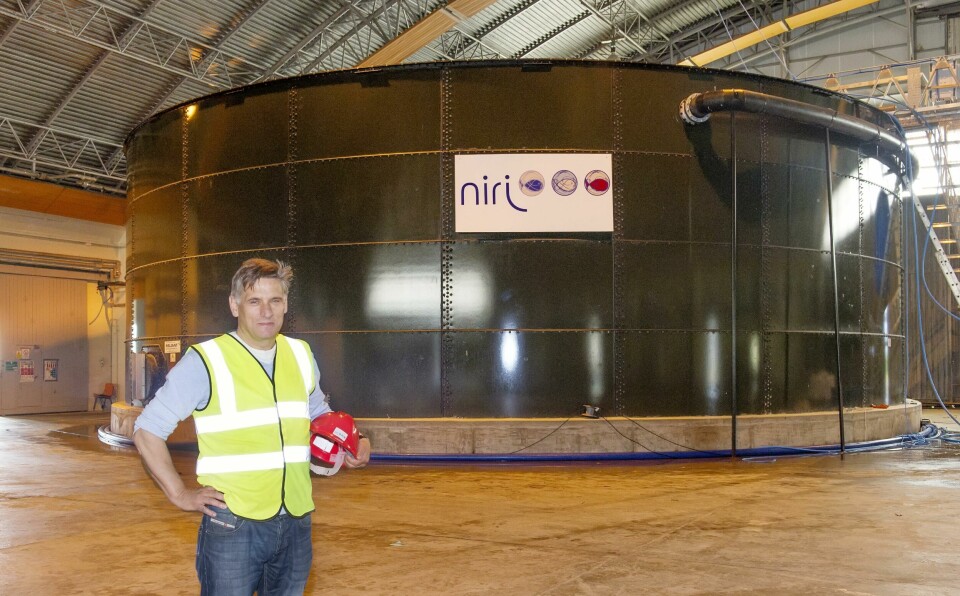
Scotland’s land-based salmon breakthrough
The world’s biggest land-based tank for growing market-sized salmon has now been constructed and stocked in Scotland.
26,000 juvenile salmon have been stocked into a 1,600 m3 tank at a former airbase in Machrihanish, near Campbeltown.
Niri’s integrated water treatment system has resolved a number of cost issues, helping to reduce investment costs and pumping costs. The systems simply cleanse and recycle the water without pumping it out of the tank rearing system, making it easy to build and operate, producing large quantities of fish of the same size.
Niri Scotland’s Chief Executive Officer Arve Gravdal said: “Our system is unique. What we have done in Scotland is to prove that our technology works and that we now can build industrial scale salmon farms anywhere in the world.”

Mr Gravdal said: “Other species are also possible. Our farms have the potential to spark the start of development to tackle a worldwide problem – namely providing enough protein to feed a growing population.”
A processing plant for consumer ready products can be integrated with the Niri system. A number of useful by-products can thereby be developed. Health supplements, fertilizer, ultra pure oil, ingredients for pet food, as well as fish feed for other species.
Company history
Niri AS was established in 2008 in Måløy, Norway, with the ambition of commercializing land-based salmon farming. In 2008 IRIS (International Research Institute of Stavanger) published a report that proved salmon farmed in a Niri system can be produced at significantly lower costs than in sea cages.
The Niri technology has been gradually developed over the past 10 years. Arve Gravdal performed his first trial in 2002 (patent no. 10491593 in the US) in 600 m3 tanks. A small team of engineers and marine biologists, lately in cooperation with Reliant Installations Ltd from UK, have since been developing the technology, resulting in the project in Scotland.






















































